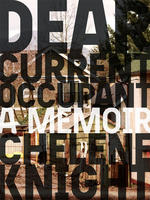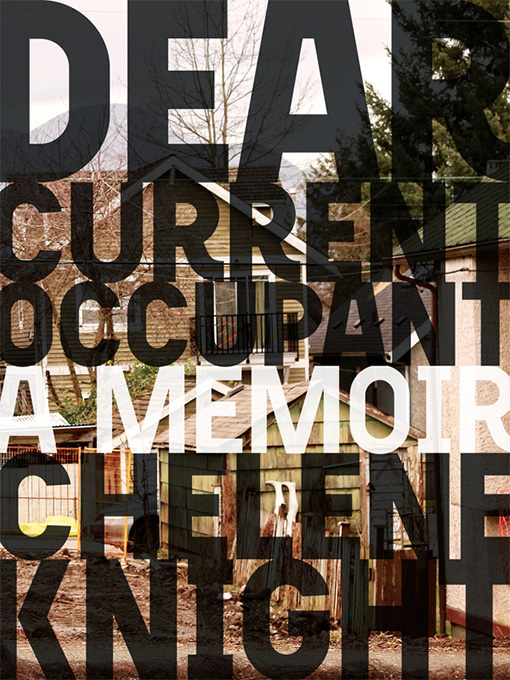The Chat With Chelene KnightPosted in Articles, Autobiography, Canada, Interviews, Media Archive on 2018-05-20 00:59Z by Steven |
49th Shelf
2018-05-09
Chelene Knight’s debut memoir Dear Current Occupant (Bookt*ug) takes a closer look at childhood trauma and the uncertain idea of home. It’s a haunting, experimental, and deeply moving book which follows the author as she returns to many of the apartments she lived in as a young girl.
The Toronto Star calls Knight “one of the storytellers we need most right now” and calls the writing in Dear Current Occupant “lush, lyrical…mesmerizing.”
Chelene Knight was born in Vancouver, and is currently the Managing Editor of Room Magazine. A graduate of The Writers’ Studio at SFU, Chelene has been published in various Canadian and American literary magazines. Her debut book, Braided Skin, was published in 2015. Dear Current Occupant is her second book. Chelene is also working on a historical novel set in the 1930s and 40s in Vancouver’s Hogan’s Alley.
Trevor Corkum: Can you tell us more about the inspiration behind Dear Current Occupant?
Chelene Knight: While I was writing my first book, Braided Skin (Mother Tongue Publishing 2015), I felt that there was an unfinished thread. Something wasn’t complete. I actually started working on Dear Current Occupant in 2013, but quickly tucked it away because the realization that I was not ready to re-experience everything was quite apparent. I was not ready to write these stories.
When it comes to childhood and trauma, there’s a certain amount of healing that needs to occur, you have to distance yourself a bit, step back from the table. Every day on my way to work I’d pass ride the Sky Train and just before the train pulled into Broadway Station, I’d get this twinge as I passed one of the buildings I used to live in as a young girl. Then I’d pass another, and another, and another and the same twinges poked and prodded under my skin. Then I knew I was ready to start the work, to put the pieces together.
I stood out front of as many of the houses as I could remember and I just wrote. It was winter and I was cold. I didn’t have gloves on and the snow was coming down, but I couldn’t stop. Memories and fragments came back like lightening. There was something about being there in the space. Even though I was outside those walls I knew so well, I will still there, back in time. I had no idea the effect this book would have on people. I have received nothing but stories of change, emails, tweets, messages, and posts about how this book changed them.
And at the end of the day isn’t that what a book is supposed to do? Change the reader…
Read the entire interview here.








